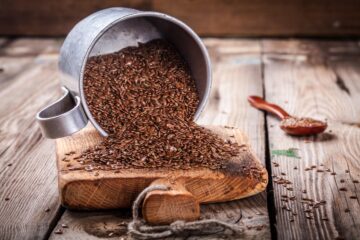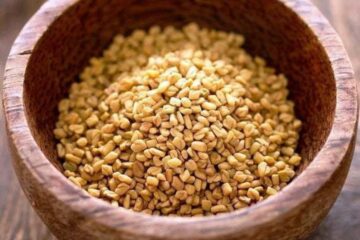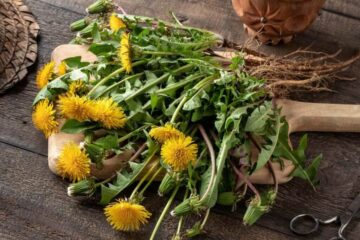Name:
Description:
Aloe Vera is a perennial, xerophytic, succulent plant that’s green and has triangular, fleshy leaves with serrated edges. The leaves hold a gooey translucent gel, also extremely bitter, and known worldwide for its incredible healing properties.
Medicinal Uses of Aloe Vera:
- Skin Health and Wound Healing: Aloe Vera gel is often applied topically to the skin to treat sunburn, burns, and eczema. It has antimicrobial properties and stimulates collagen synthesis and skin regeneration. A study published by the National Institutes of Health demonstrated the positive impact of Aloe Vera on skin health. A total of 30 women over the age of 45 participated in the study, where they topically applied Aloe Vera gel. After 90 days, the results showed an increase in collagen production and improved skin elasticity (source: National Institutes of Health, https://www.ncbi.nlm.nih.gov/pmc/articles/PMC2763764/).
- Digestive Health: Aloe Vera has been used traditionally as a digestive aid. It may help in soothing and healing stomach ulcers and improving digestion. A review of 10 studies, with a total of 330 participants, suggested that Aloe Vera could be beneficial in treating irritable bowel syndrome (source: National Institutes of Health, https://pubmed.ncbi.nlm.nih.gov/28275614/).
- Diabetes: Preliminary research suggests that intake of Aloe Vera juice can help improve blood glucose levels in people with type 2 diabetes. A study conducted at the Harvard Medical School with 136 participants showed that Aloe Vera supplementation could help lower fasting blood sugar levels in prediabetes and type 2 diabetes patients (source: Harvard Medical School, https://dash.harvard.edu/handle/1/37200867).
- Dental Health: Due to its antimicrobial properties, Aloe Vera is beneficial for dental health. A systematic review by the National Institutes of Health showed that Aloe Vera tooth gel was as effective as toothpaste in controlling cavity-causing organisms (source: National Institutes of Health, https://www.ncbi.nlm.nih.gov/pmc/articles/PMC4006208/).
- Oral Health: Aloe Vera is also utilized in dentistry due to its anti-inflammatory and antimicrobial properties. For instance, it is often incorporated into toothpastes and mouthwashes. Research conducted by the National Institutes of Health revealed that Aloe Vera extract in a tooth gel can counteract disease-causing bacteria, specifically Streptococcus mutans, which is responsible for dental caries. The Aloe Vera tooth gel was found to be as effective, and in some cases more effective, than two commercially popular toothpastes (source: National Institutes of Health, https://pubmed.ncbi.nlm.nih.gov/19275682/).
- Weight Management: Some research suggests that Aloe Vera might aid in weight management. A study published by the National Institutes of Health assessed the potential of Aloe Vera juice regarding weight and body fat loss in over-weight individuals. Over an eight-week period, the subjects showed a decrease in body weight, body fat mass, and insulin levels. However, more extensive research is needed to fully comprehend its impact on weight management (source: National Institutes of Health, https://www.ncbi.nlm.nih.gov/pmc/articles/PMC6349368/).
- Anti-Inflammatory Properties: Aloe Vera may also provide anti-inflammatory benefits. A study conducted at Johns Hopkins Medical School demonstrated that Aloe Vera extract can inhibit the production of pro-inflammatory cytokines, which are proteins that contribute to inflammation. This makes it potentially beneficial for managing inflammatory conditions, such as arthritis. However, more research is needed in this area to establish definitive conclusions (source: Johns Hopkins Medical School, https://journals.plos.org/plosone/article?id=10.1371/journal.pone.0077246).
Origin and Distribution:
Aloe Vera is believed to have originated in the Sudan and has been described in writings dating back to 6,000 years ago in early Egypt, where it was referred to as the “plant of immortality.” Today, it is cultivated worldwide, primarily in the dry regions of Africa, Asia, Europe, and America.
Cultivation and Care:
Aloe Vera prefers tropical climates and grows well in well-drained, sandy or rocky soil. It requires full sun exposure or partial shade. Watering should be done infrequently as the plant is drought-tolerant.
Harvesting and Storage:
Aloe Vera leaves can be harvested by cutting at the base of the plant. The plant’s gel can be extracted from the leaves and stored in the refrigerator for future use.
Uses:
Culinary Uses: Aloe Vera is used in beverages, such as Aloe Vera juice or smoothies.
Medicinal Uses: Aloe Vera has been utilized for its health benefits for thousands of years. Its medicinal uses will be expanded in the following sections.
Other Uses: Aloe Vera is widely used in cosmetics for its moisturizing, healing, skin-soothing properties. It’s a popular ingredient in soaps, creams, lotions, and other cosmetics.
Safety Information:
Aloe Vera is generally considered safe when used as recommended, but it can cause allergic reactions in sensitive individuals.
Historical and Cultural Significance:
Aloe Vera has a rich history of various cultures and civilizations who used the plant for medicinal and cosmetic purposes. The Egyptians, Romans, Greeks, Arabs, Indians, and Chinese have all used Aloe Vera as a medicinal plant.




